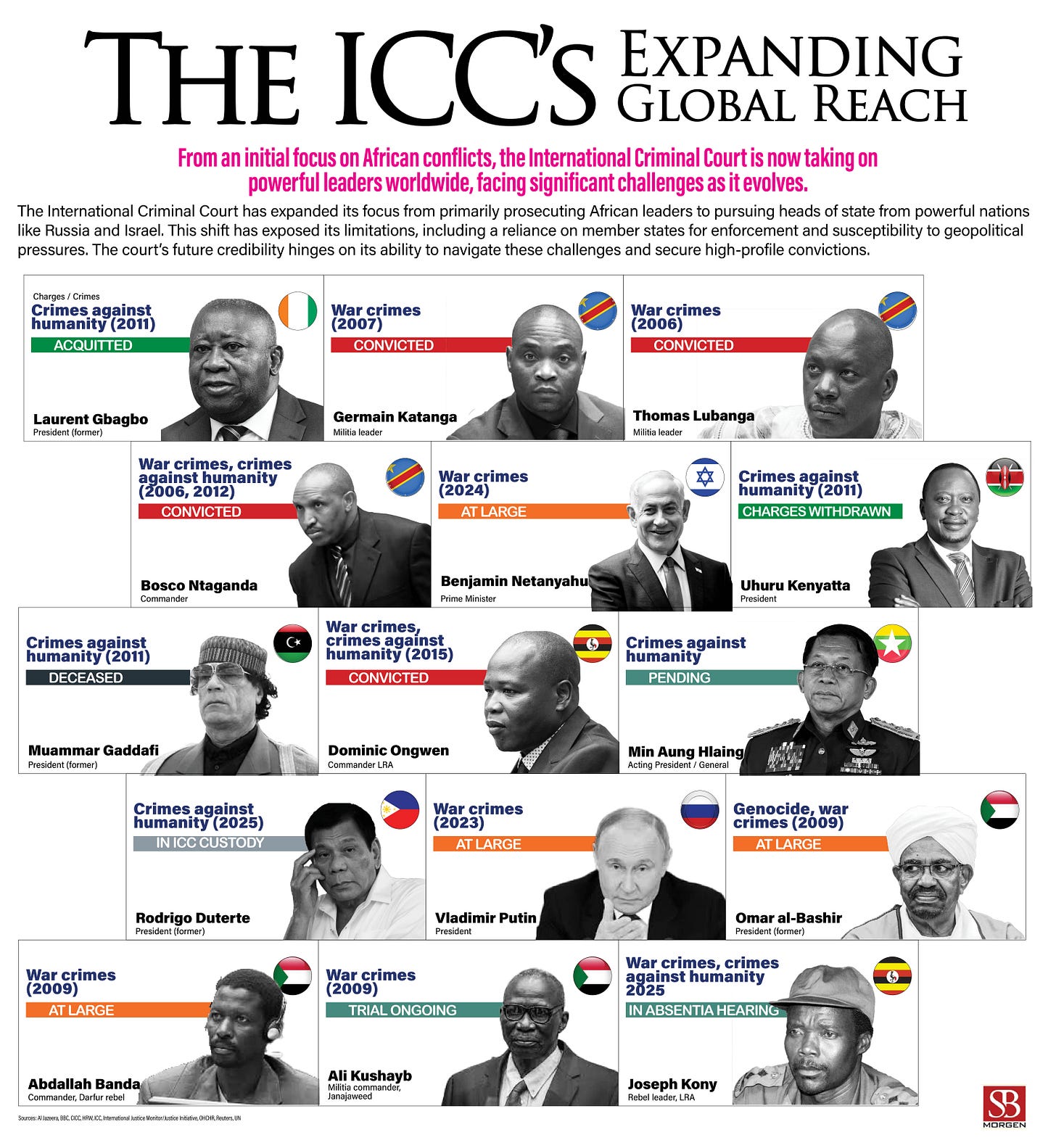The week ahead – Between reforms and realities
Africa balances reform and crisis. Nigeria's economic contradictions, Ghana's inflation, Côte d’Ivoire's contentious polls, and the ICC's historic Kony case dominate.
Africa is juggling reforms and crises. From Nigeria’s economic high-wire act: boasting revenue while debt soars, banning shea exports, and wrestling with refineries and bandit-pacts; to Ghana’s dollar rules amid easing inflation, the region is a study in contrasts. Côte d’Ivoire trims its presidential field with controversial zeal, while the ICC, undeterred by absence, finally puts Joseph Kony on trial.
Chart of the week
Video
Security analyst, Kehinde Giwa, talks with CGTN about our report, which showed that kidnappers in Nigeria demanded nearly $1.7 million in ransom between July 2024 and June 2025, highlighting the growth of kidnapping into a lucrative criminal enterprise.
Podcast
Will the ban on shea nut exports reshape the balance between exporters and local processors in the short term?
Could the CNG price hike slow Nigeria’s energy transition and push more citizens back to petrol use?
Will Tidjane Thiam’s international reputation give him an edge in the Ivory Coast’s tense political landscape?
Listen here or by searching for “The Week Ahead, SBM Intelligence” anywhere you find podcasts.
What are we following this week?
Nigeria imposed a six-month ban on exporting raw shea nuts to increase local processing. The move aims to capture more value from the $6.5bn global market, create jobs, and shift from being a raw material supplier to a refined product exporter.
President Tinubu announced Nigeria hit its 2025 revenue goal ahead of schedule, crediting non-oil growth and naira stabilisation, ruling out new borrowing. This directly contradicts the House Speaker’s urgent warning from a day earlier that the national debt has already exceeded statutory limits.
Nigeria's NNPC is seeking partners for its unviable refineries as CNG prices surge due to market forces. Simultaneously, NUPENG suspended its Dangote strike after winning union rights. These events reveal the tension between reform, market realities, and labour in energy.
Former Kaduna governor Nasir El-Rufai controversially claimed the government is paying bandits, a policy he warned worsens insecurity. Officials denied the allegation. The row coincided with a deadly Boko Haram attack in Borno that killed at least 60 people.
To stabilise the foreign exchange market, Ghana's central bank has prohibited commercial banks from making unbacked US dollar payouts to large corporations. This occurs alongside slowing inflation and a significant recovery for the cedi currency this year.
Only five candidates, including incumbent Ouattara and ex-First Lady Simone Gbagbo, are cleared for Côte d’Ivoire's October election. The barring of figures like Laurent Gbagbo and Tidjane Thiam has been condemned, escalating political tensions.
The ICC has commenced confirmation hearings against Ugandan rebel leader Joseph Kony, its first case to proceed in absentia. He faces 39 counts of war crimes, including murder and conscripting child soldiers, after evading arrest for two decades.


